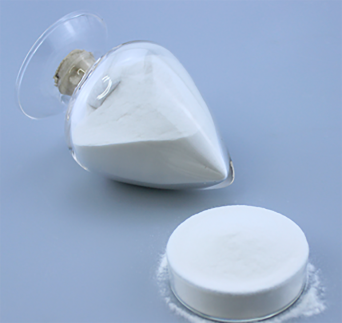
Aug . 24, 2024 09:05 Back to list
Is HPMC Dissolvable in Water and What Are Its Applications?
Understanding the Solubility of HPMC in WaterHydroxypropyl Methylcellulose (HPMC) is a widely used polymer in various industries, particularly in the pharmaceutical, food, and construction sectors. One of the common inquiries regarding HPMC is whether it is soluble in water. The answer is yes; HPMC is indeed soluble in water, but this solubility comes with some specific characteristics that are important to understand.HPMC is a semi-synthetic polymer derived from cellulose, which is a natural polymer extracted from plants. The modification process involves the substitution of hydroxyl groups in cellulose with hydroxypropyl and methoxy groups. This chemical alteration not only enhances its solubility in water but also improves its properties as a thickening, binding, and film-forming agent. The degree of substitution and the molecular weight of HPMC can significantly affect its solubility in water.When added to water, HPMC dissolves to form a clear, viscous solution. The solubility of HPMC is influenced by various factors, such as temperature and concentration. Generally, higher temperatures can increase the solubility of HPMC, making it easier to incorporate into aqueous formulations. This characteristic makes HPMC an attractive option for applications where a viscous or gel-like consistency is required, such as in the formulation of controlled-release drug delivery systems or as a stabilizer in food products.In pharmaceuticals, HPMC serves multiple roles, including as an excipient in tablet formulations, where it can control the release of active ingredients. Its solubility profile enables it to function effectively in both immediate and extended-release formulations. This property is particularly beneficial in ensuring that medications are delivered to the bloodstream at a controlled rate, enhancing their efficacy and reducing side effects.In the food industry, HPMC is recognized for its ability to improve texture and moisture retention in various products. Its water-soluble nature allows it to act as a thickener or stabilizer in sauces, dressings, and baked goods. By adding HPMC to these formulations, manufacturers can achieve desirable viscosity and mouthfeel, which are crucial for consumer acceptance.Furthermore, in the construction industry, HPMC is used in mortar and tile adhesive formulations because of its water-retaining properties. This ensures that the mortar maintains adequate moisture levels during the curing process, leading to stronger bonds in construction materials.In summary, HPMC is soluble in water, and this solubility is integral to its function in various applications. Understanding the nuances of its solubility helps industries effectively utilize this versatile polymer. Whether in pharmaceuticals, food technology, or construction, HPMC's water solubility contributes to its role as a critical component in enhancing product performance and quality. As we continue to explore and innovate with materials like HPMC, the implications for various fields are vast, opening doors to new technologies and applications.
is hpmc soluble in water

.
-
Versatile Hpmc Uses in Different Industries
NewsJun.19,2025
-
Redispersible Powder's Role in Enhancing Durability of Construction Products
NewsJun.19,2025
-
Hydroxyethyl Cellulose Applications Driving Green Industrial Processes
NewsJun.19,2025
-
Exploring Different Redispersible Polymer Powder
NewsJun.19,2025
-
Choosing the Right Mortar Bonding Agent
NewsJun.19,2025
-
Applications and Significance of China Hpmc in Modern Industries
NewsJun.19,2025







